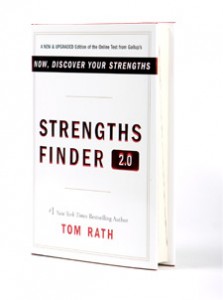 Technology prowess in Nashville; purpose at work; StrengthFinders; Mom! I Got a Job, Bamamba, and much more. Yes, it’s this week’s roundup.
Technology prowess in Nashville; purpose at work; StrengthFinders; Mom! I Got a Job, Bamamba, and much more. Yes, it’s this week’s roundup.
Nashville: A Tech Power
Seriously? Forbes says the home of the Grand Ole Opry and its environs is one of the hottest metro areas in the U.S. for tech jobs. Umm. OK. If you say so. (We liked the pictures.) The Forbes list includes all the usual suspects, in addition to the Nashville-Davidson-Murfreesboro-Franklin, Tennessee area, and the equally unexpected Jacksonville, Florida area.
They made the list because Forbes ranked cities on their percentage of growth, which gives an edge to areas with few tech jobs that see a spurt. That may be why Austin, Texas, and metro Boston failed to make the list.
Purpose-driven Jobs
A clearly defined purpose — something beyond just commercial goals — is the second-most-important thing to employees. That’s according to a consultancy called “Calling Brands.”
Thousands of people in the UK, Germany, and the U.S. were surveyed, and on average, 65% said that “working for an organization with purpose would motivate them to go the ‘extra mile’ in their jobs.”
Calling Brands has a larger report on “purpose” out; go here and scroll down.
 Mom! I Got a Job
Mom! I Got a Job
We mention mom!Igotajob this week to show, if nothing else, that, apparently not every goofy variation of the word “job” or “resume” has thus far been used to name a job site. With this new site, candidates are led through a process that builds a letter of recommendation from their contacts. Here’s a brief explanation of how it works.
Say That 10 Times Fast
Among the many other new recruiting websites (more than one a day!) people have told us about this week: Bamamba. “Posting jobs for hundreds of dollars is frankly ridiculous,” the company is telling prospective customers; it’s charging no fees now, and a little more later.
Referral Site Launch
Thirty customers in London and the San Francisco Bay are part of the soft launch of the latest employee referral company, RolePoint. It’s backed by venture capital, and has developed algorithms to “suggest relevant candidates for suitable jobs depending on the employees’ network, work experience, and previous referral history.”
One co-founder was previously involved in a video-interviewing company called OVIA.
Finding Strengths
 That StrengthsFinder book and concept is super popular, so we wanted to catch up with someone using it in the workplace. One such company is IMN, which is in the content-email-digital marketing business, has 100 employees, and hopes to expand by 20 percent in six months.
That StrengthsFinder book and concept is super popular, so we wanted to catch up with someone using it in the workplace. One such company is IMN, which is in the content-email-digital marketing business, has 100 employees, and hopes to expand by 20 percent in six months.
IMN’s CEO Ben Levitan says finalists for jobs all have to read the StrengthsFinder book, though, Levitan says, he tries not to use it as a screening-out tool.
He wants people who fit his growing, post-startup company “gearing up for the next phase of growth”; they don’t have to all be alike, but he at least wants to have a feel for who they are. IMN employees have their strengths listed on their office doors, and the information is used to interact and communicate with people better.
One employee, Levitan says, was “working his ass off,” and Levitan knew from his StrengthsFinder results that he could use some time off to avoid burnout, but needed to be pushed a bit to take a vacation.